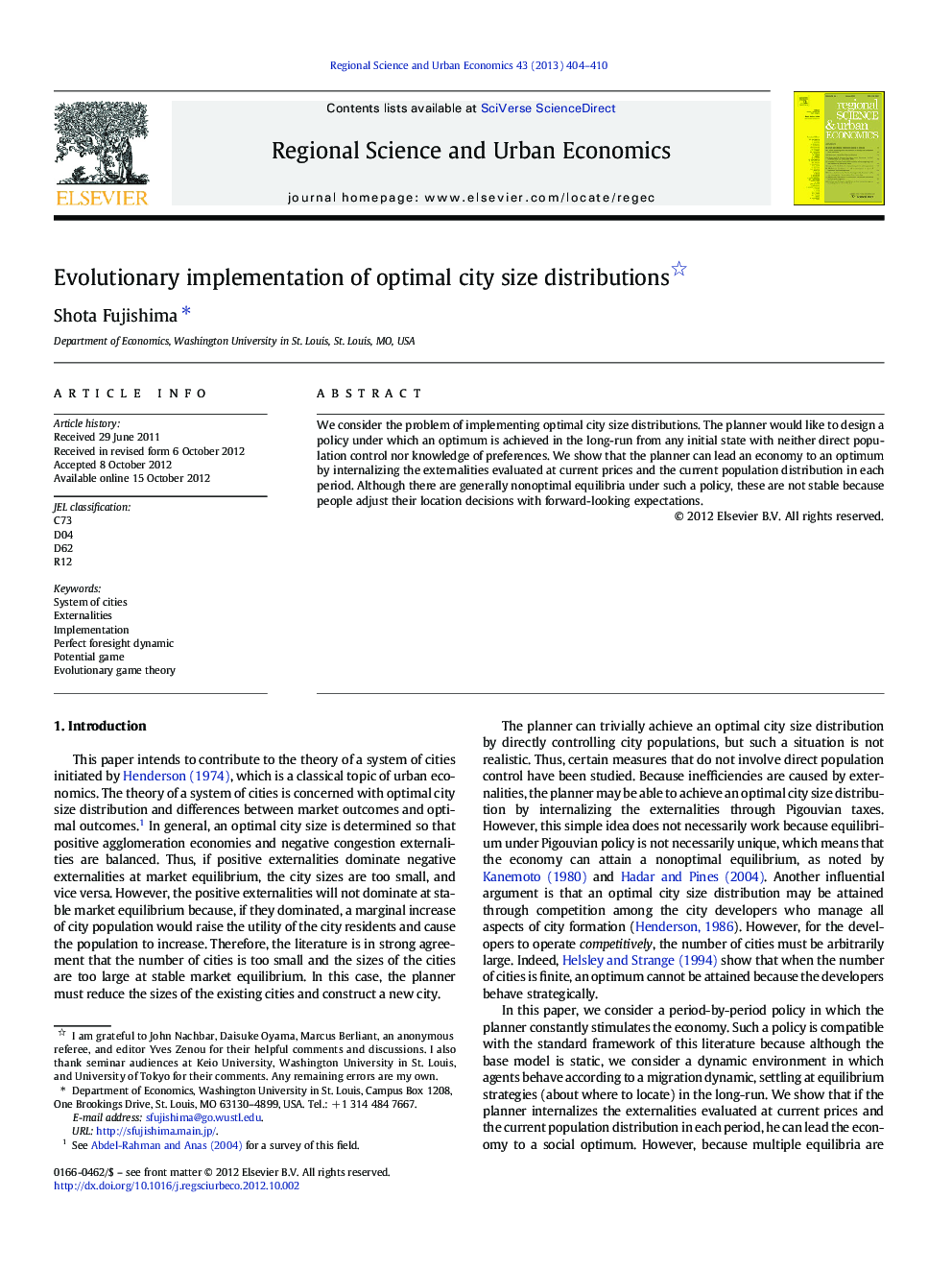| Article ID | Journal | Published Year | Pages | File Type |
|---|---|---|---|---|
| 983974 | Regional Science and Urban Economics | 2013 | 7 Pages |
We consider the problem of implementing optimal city size distributions. The planner would like to design a policy under which an optimum is achieved in the long-run from any initial state with neither direct population control nor knowledge of preferences. We show that the planner can lead an economy to an optimum by internalizing the externalities evaluated at current prices and the current population distribution in each period. Although there are generally nonoptimal equilibria under such a policy, these are not stable because people adjust their location decisions with forward-looking expectations.
► We consider evolutionary implementation of optimal city size distributions. ► We achieve optimum with neither population control nor knowledge of preferences. ► We can do so by internalizing externalities at current state in each period. ► We consider a migration dynamic with forward-looking expectations. ► The relationship of our argument to the Henry George Theorem is discussed.
